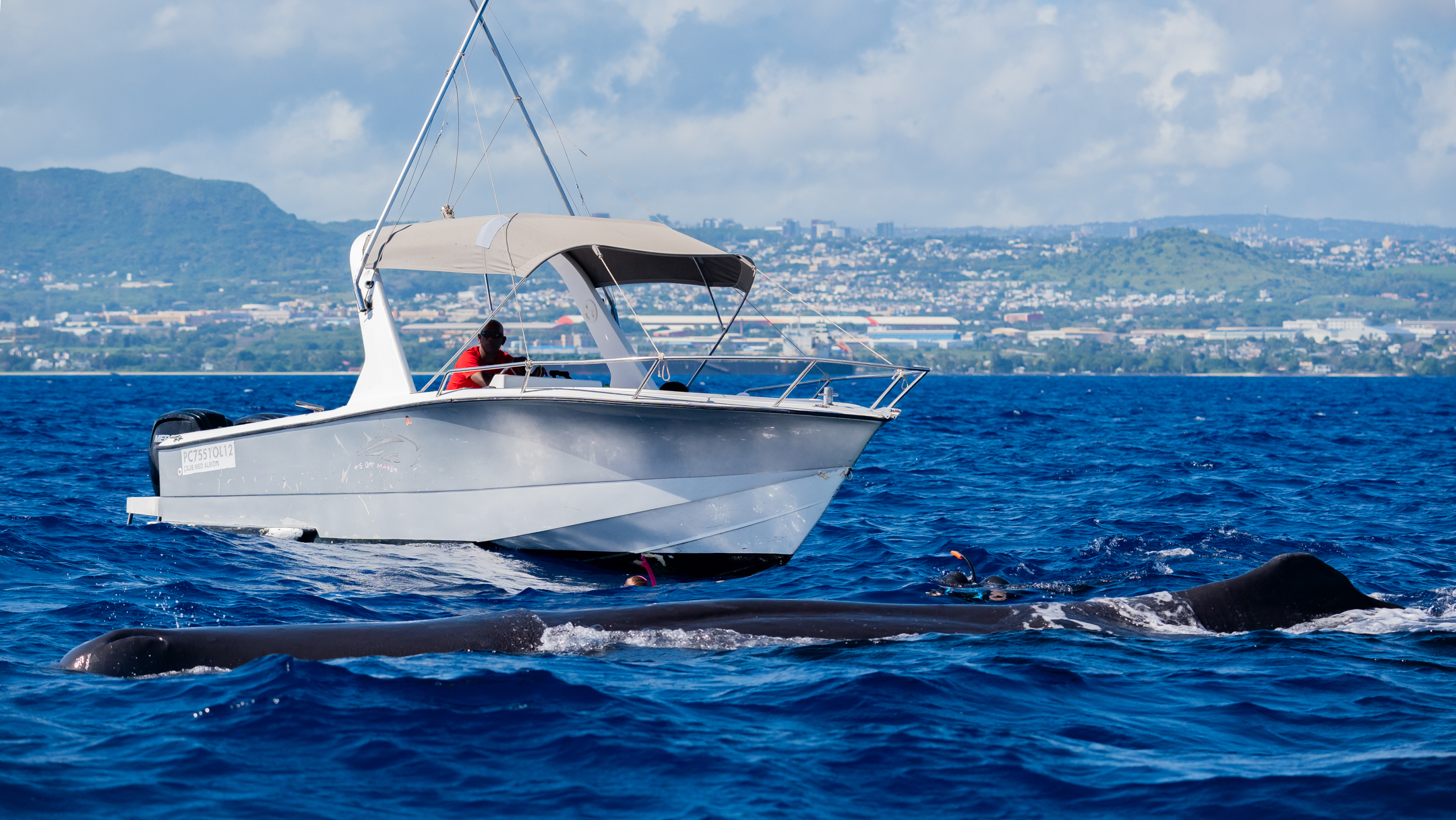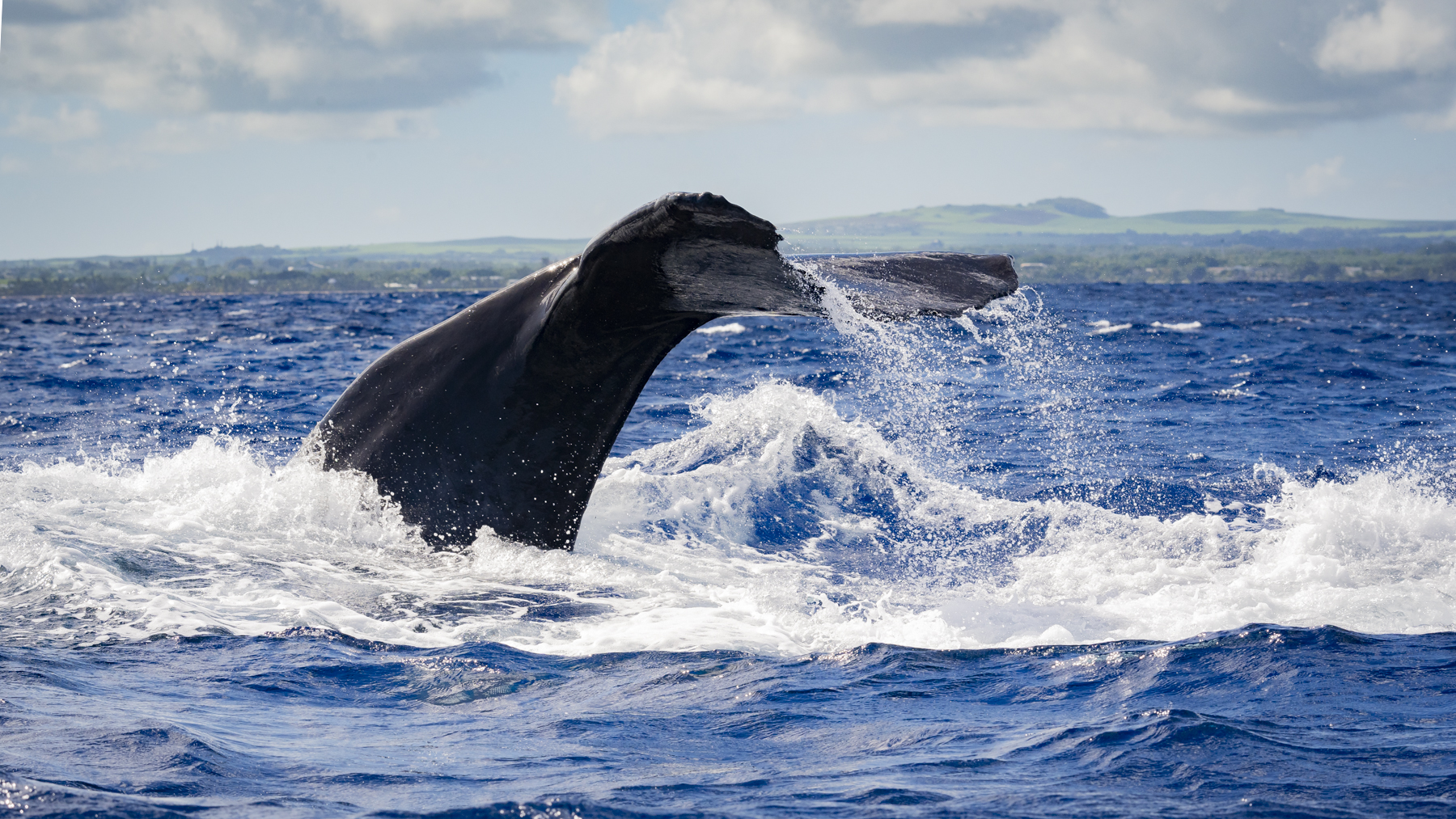
The Wildest of Them All: Whale Tourism in Mauritius
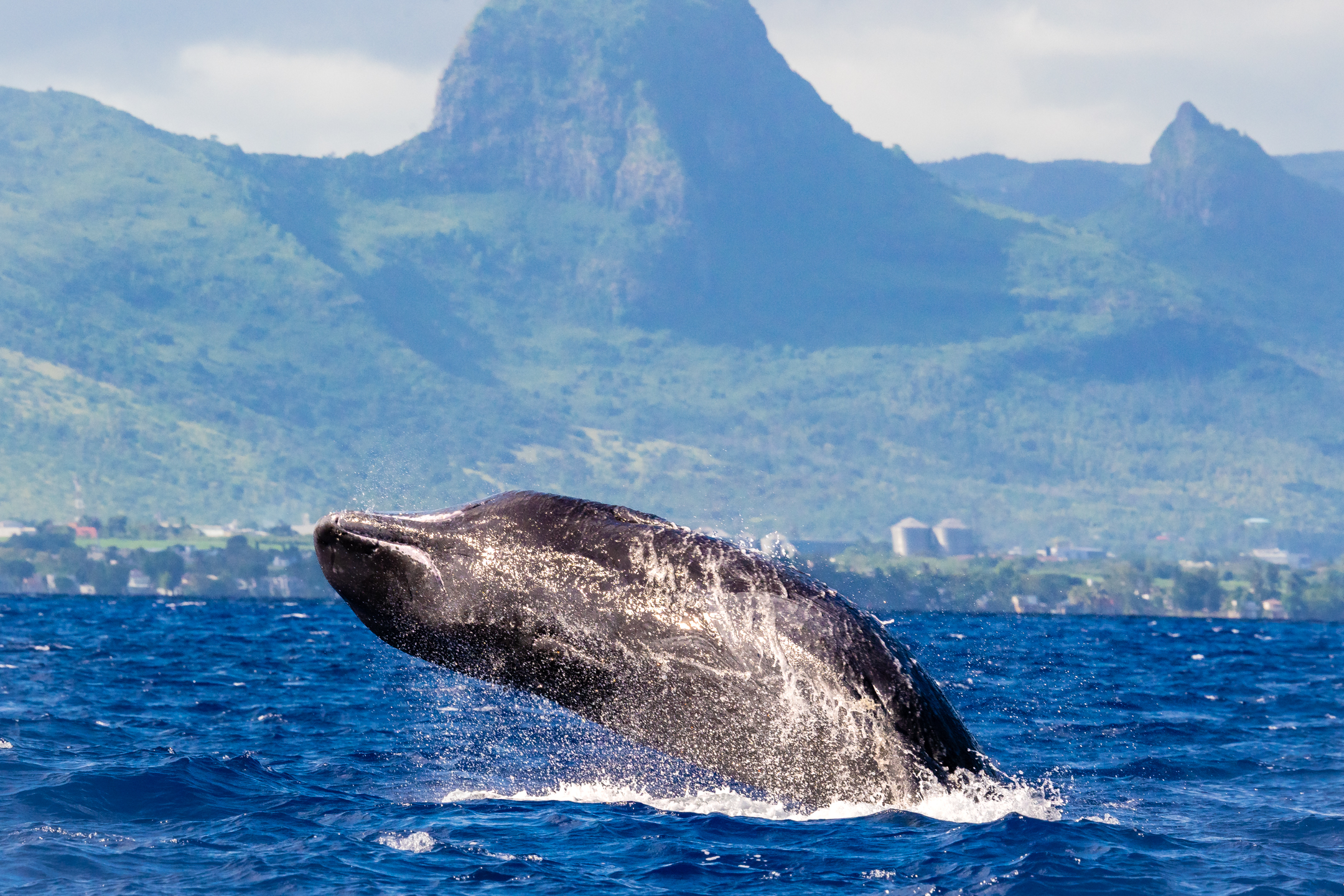
What a Whale Can Teach Us About Being Human
By Fabrizio Ferrari – Spotted Fabri
📍 On board, somewhere in the Indian Ocean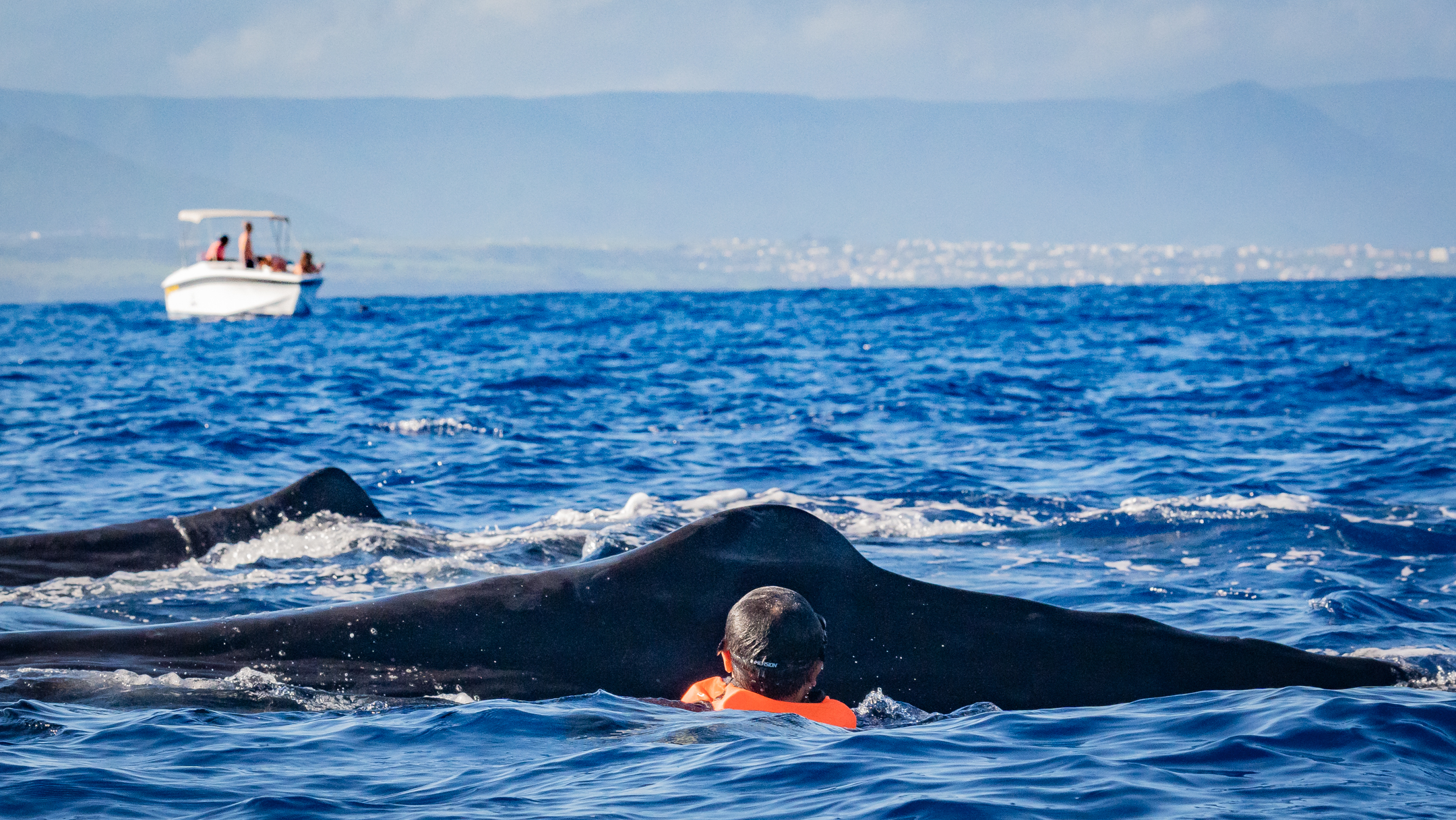
It’s a daily ritual here in Mauritius, where im volunteering as a guide on a whale-watching boat. But what I witnessed every morning left me with more questions than answers. Every day a bunch of speed boats gets around to a somewhat called "The city". From 5 am to the afternoon. A tense, waiting room...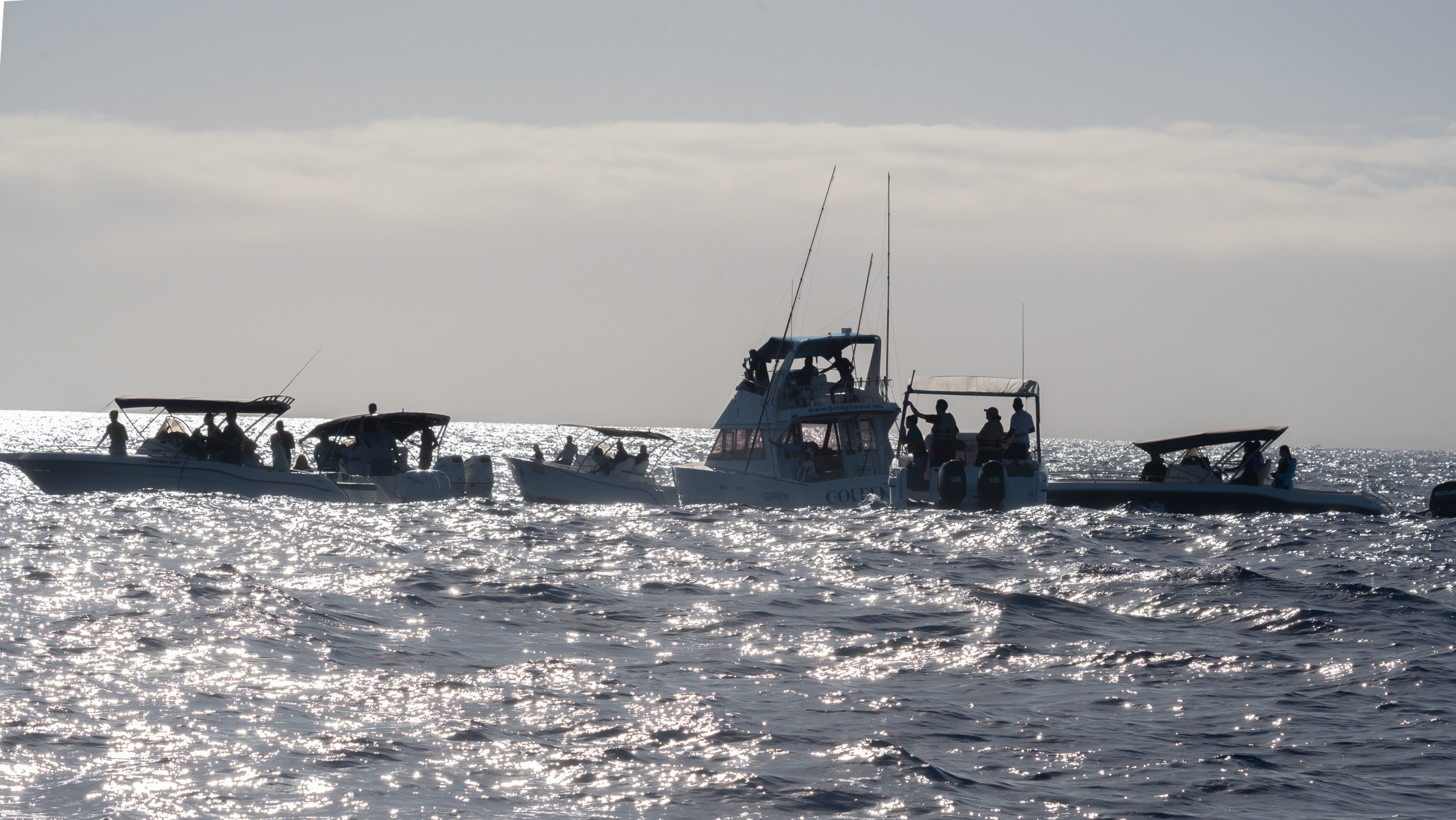
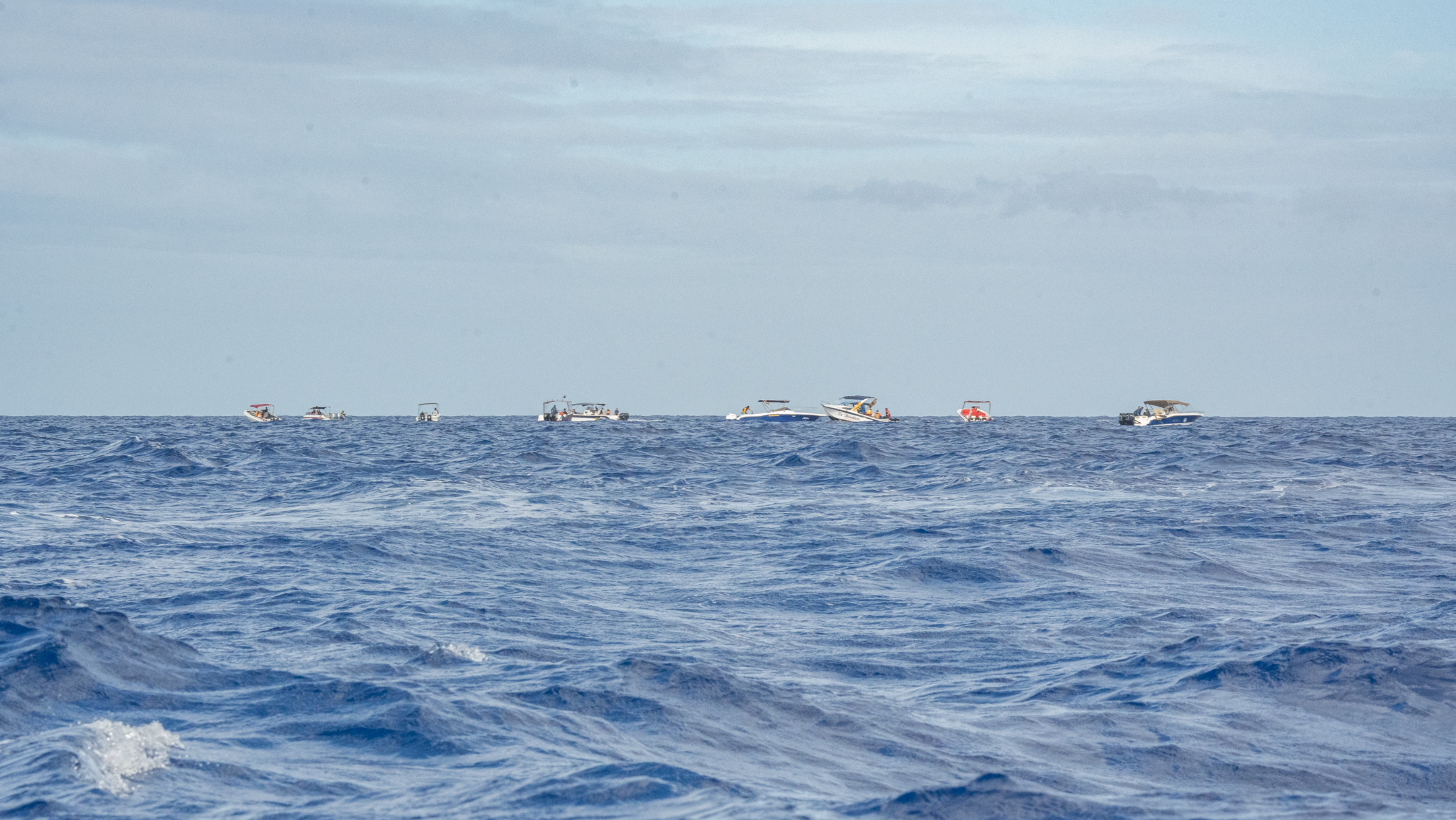
“WHALE!”
The loud shout broke the silence, followed by the roar of engines pushing the boats very fast, competing who gets there first and the splash of swimmers jumping into the water.
We weren’t the only boat around the sperm whales — there were twenty others, engines revving, boats zigzagging. Tourists screamed with excitement, all trying to get that perfect shot. We stayed back.
People were dropped into the water — but here’s the thing:
For what i saw, there was not even a second of hesitation on how the animal was behaving. Maybe they dont want to know. Maybe they dont empathize with them.
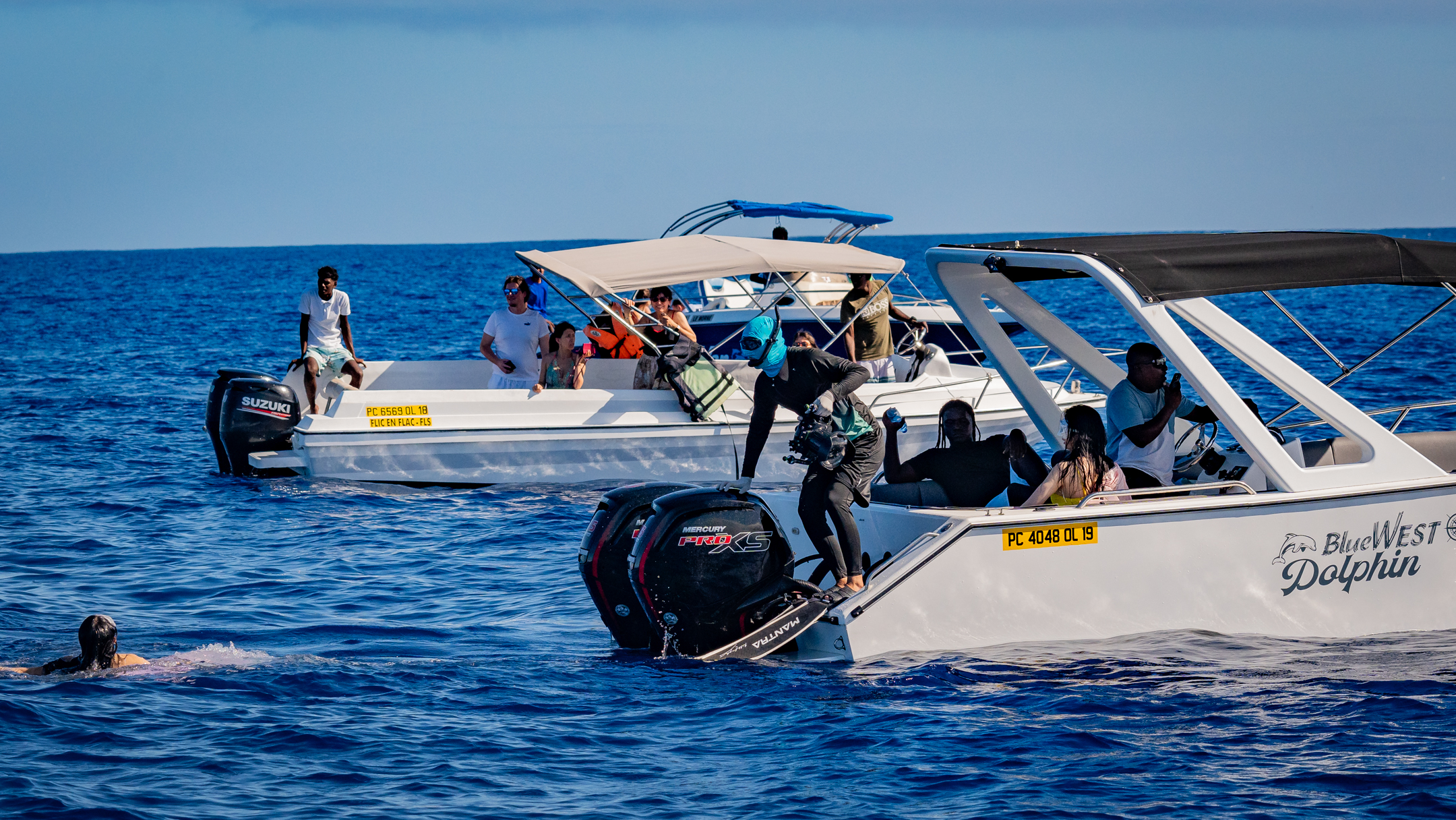
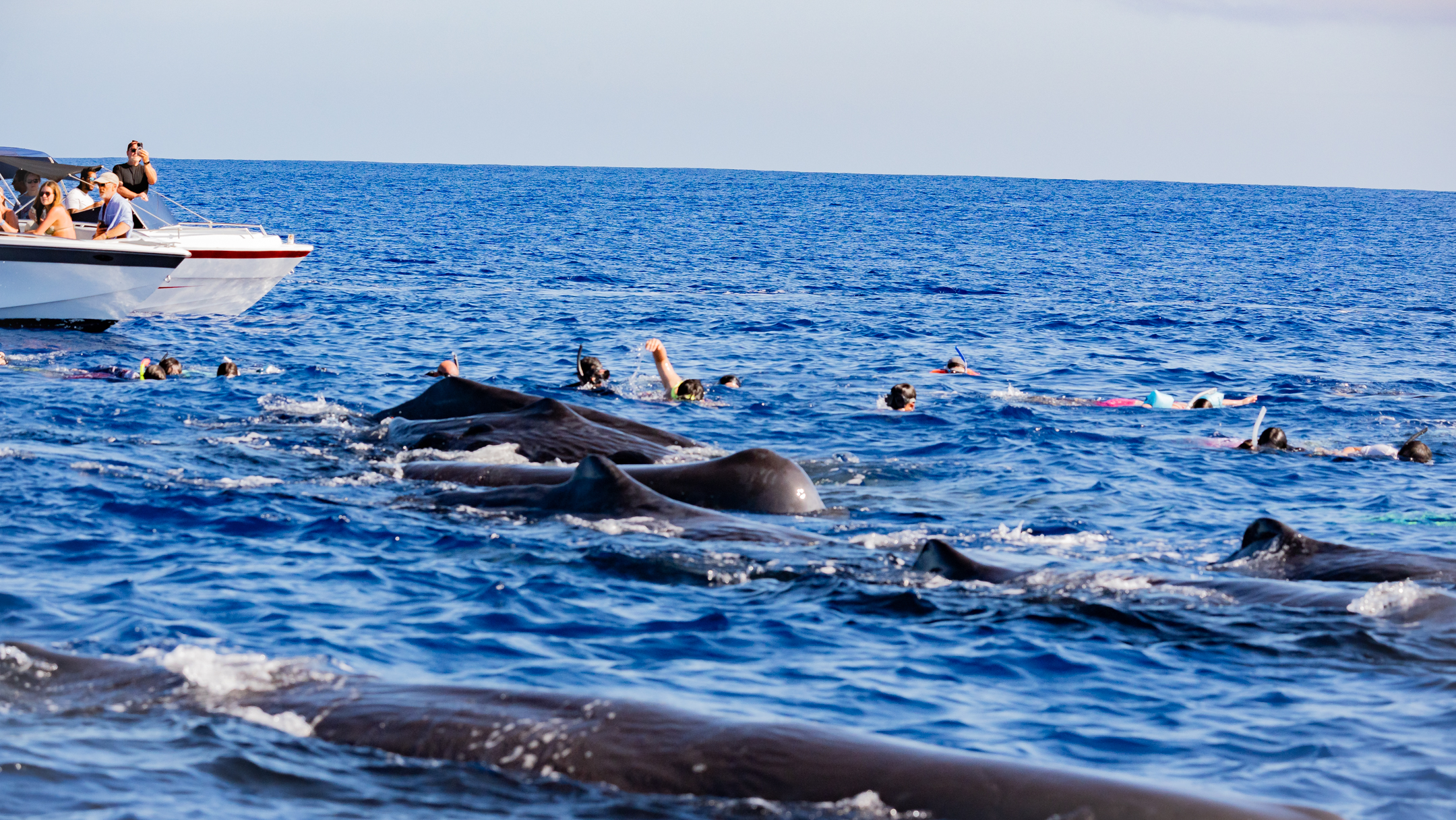
They were covered head to toe, like they didn’t want to be recognized.
What is that about? It was as if being in a militia group.
I then understood why... The whales got incredibly disturbed when swimmers went to the water. A peaceful moment for them, it should be. But what it was supposed to be a moment of resting after an exhausting 2000 metres dive, turned into a nightmare for them.
This created a lot of doubts around my head
Do they care about the whales they’re chasing? Do they know what they are chasing?
Where the Wild Still Breathes: The Biodiversity of Mauritius
There are few places in the world where the wild still breathes with such intensity. Mauritius, a small island in the Indian Ocean, holds one of the richest pockets of marine and coastal biodiversity on the planet.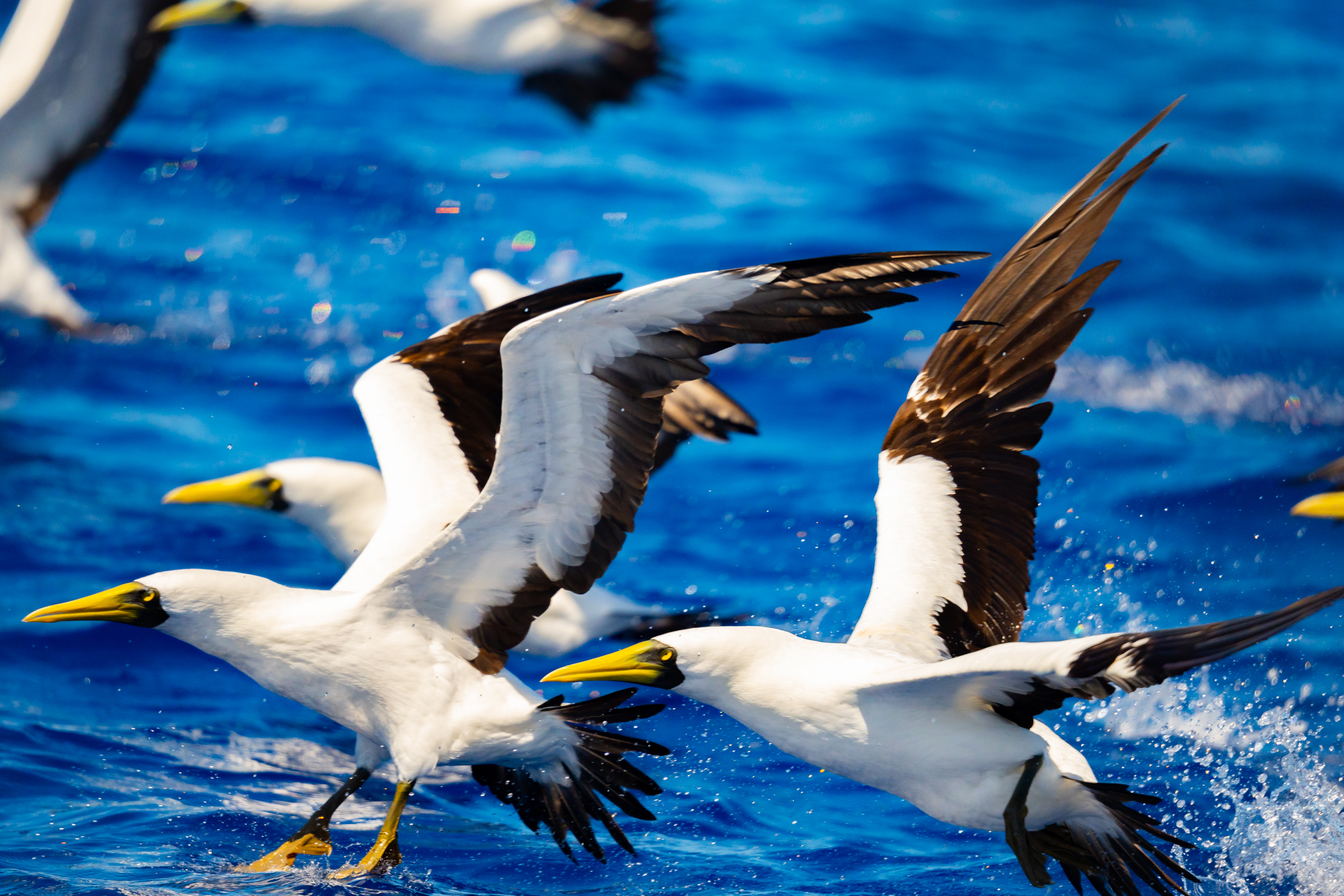
Above the waves, you’ll see seabirds diving with precision, nesting on islets shaped by time. Below the surface, a dance of life... spinner dolphins, spotted, bottlenose, frasiers, short finned pilot whales, beaked whales, humpback whales, sharks, coral gardens and turtles gliding through seagrass meadows like ancient sentinels. An incredible array of marine animals.
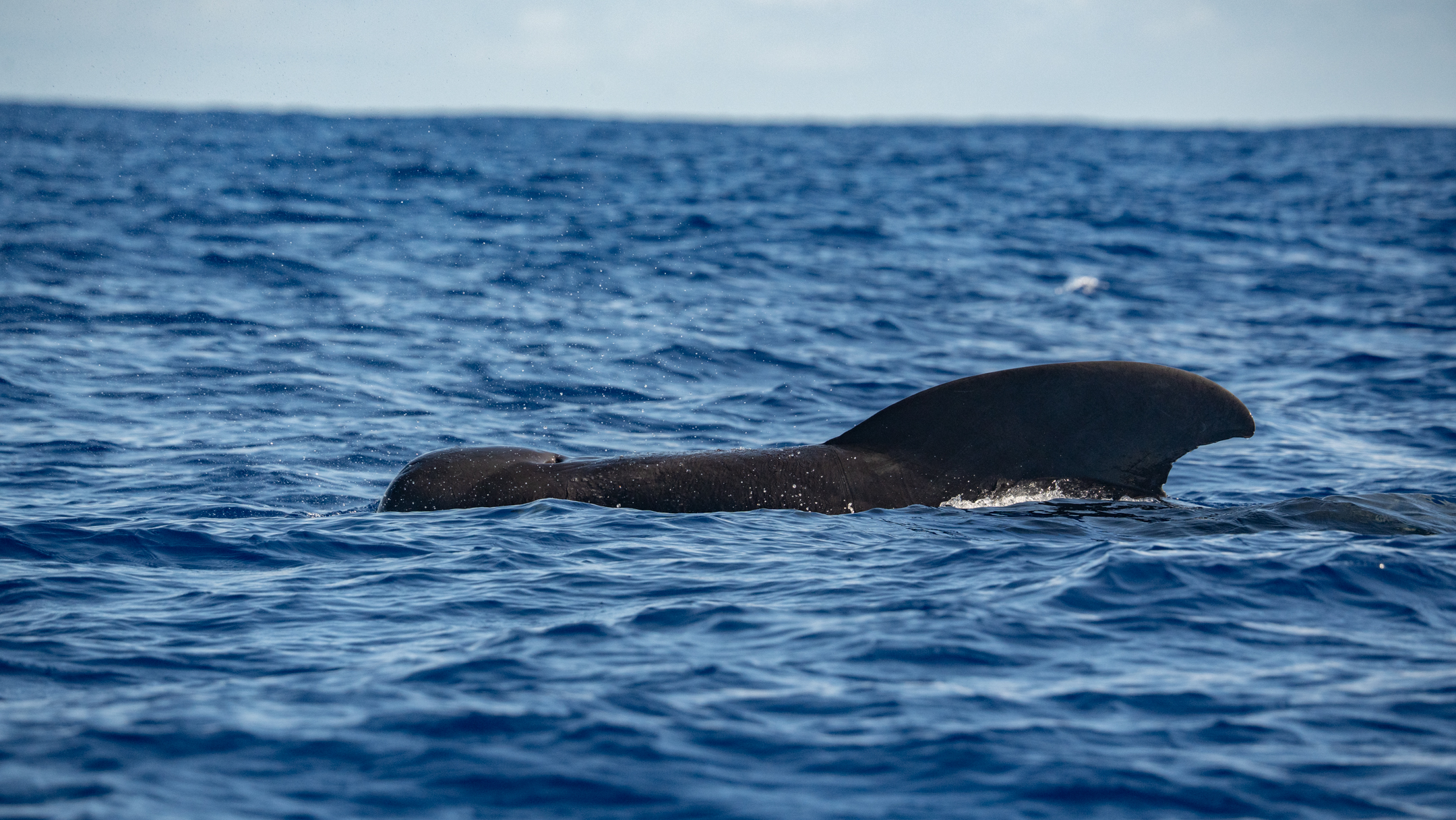
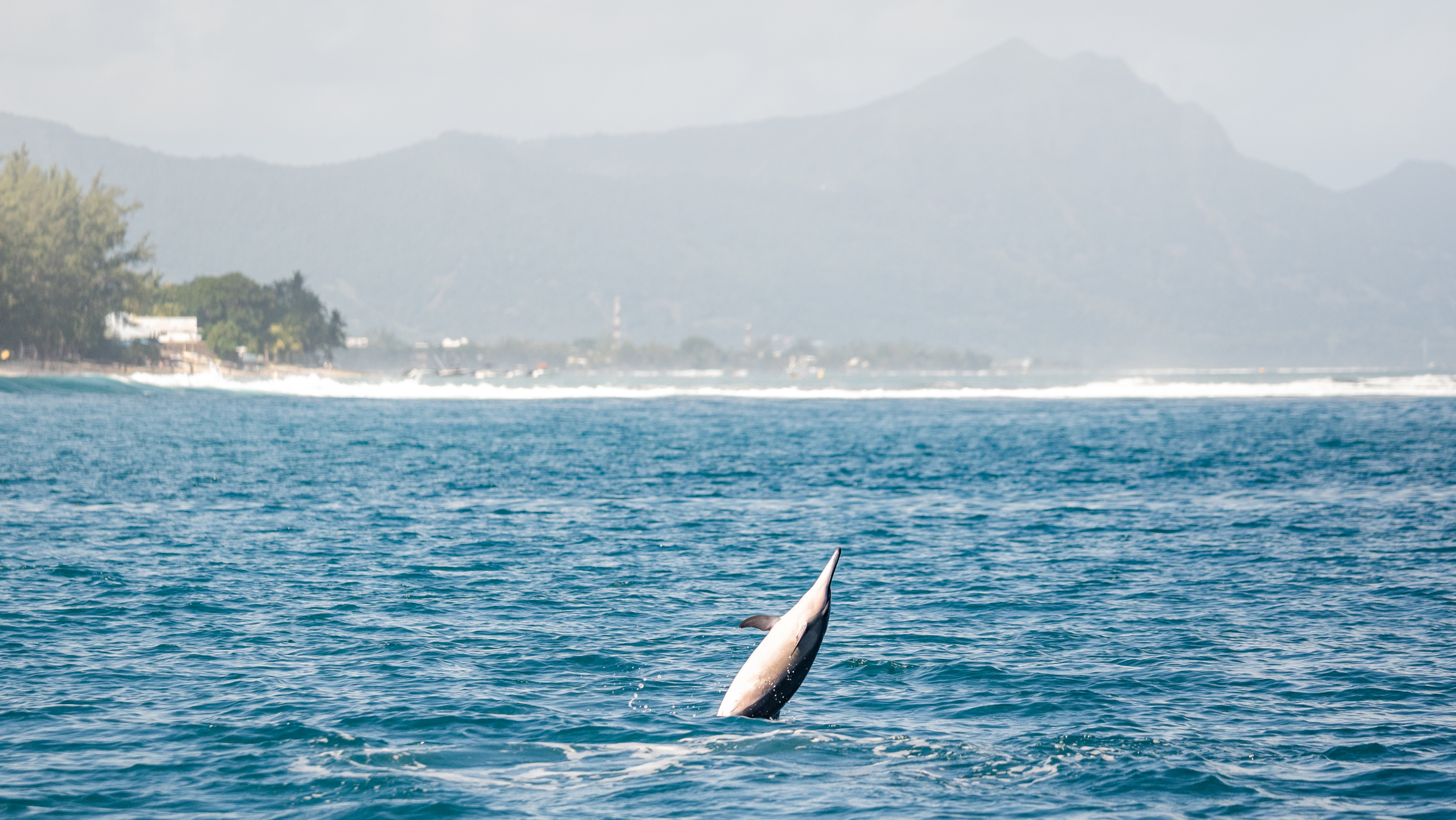
.jpg)
And then, there are the whales. Sperm whales, in particular, don’t just migrate through here — they live here. Entire families — mothers, calves, aunties — call this deep blue trench home. They dive together, sleep side by side, and speak in clicks we are only just beginning to understand. Mauritius is one of the only places in the world where these whales are residents year-round.
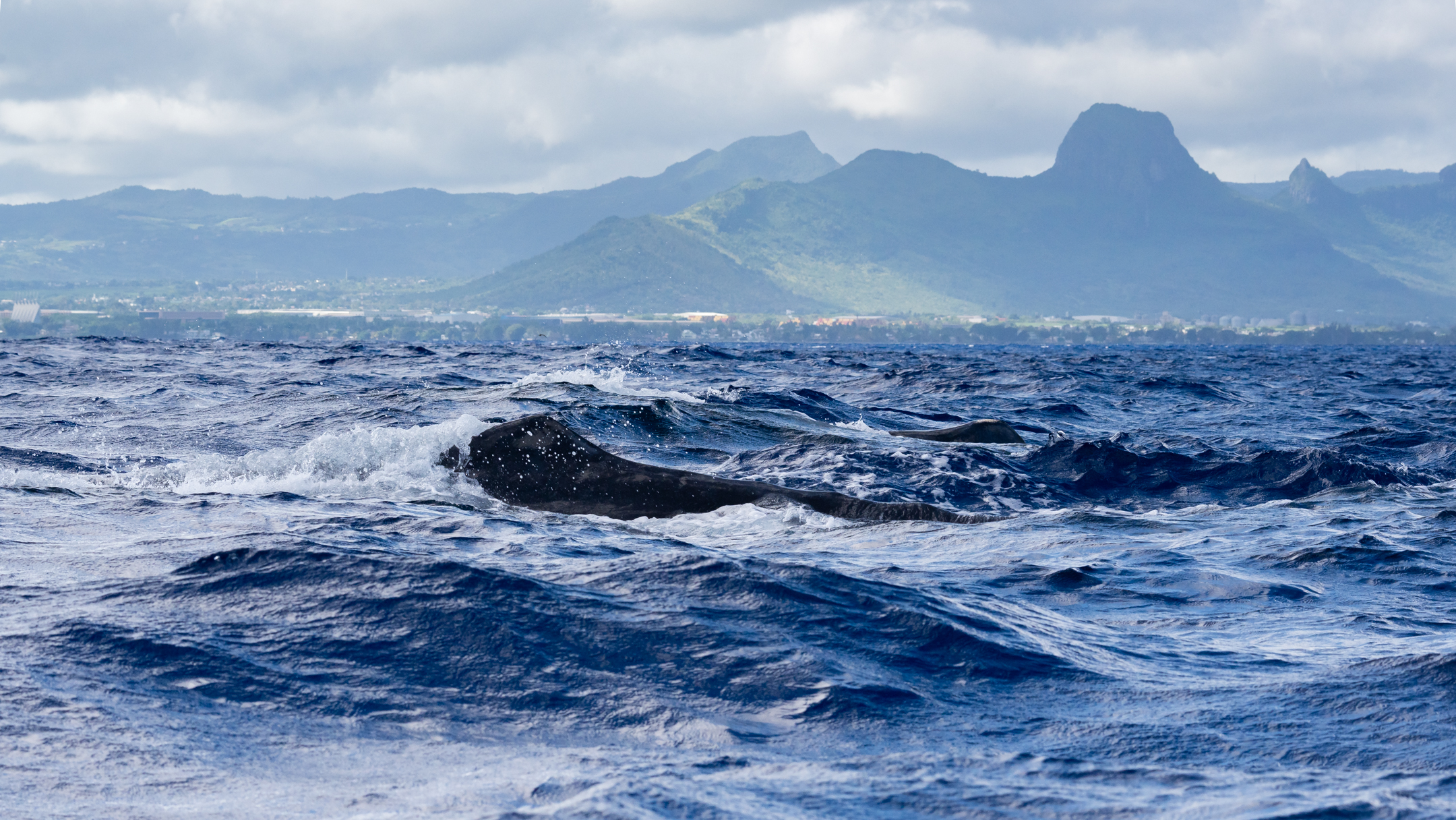
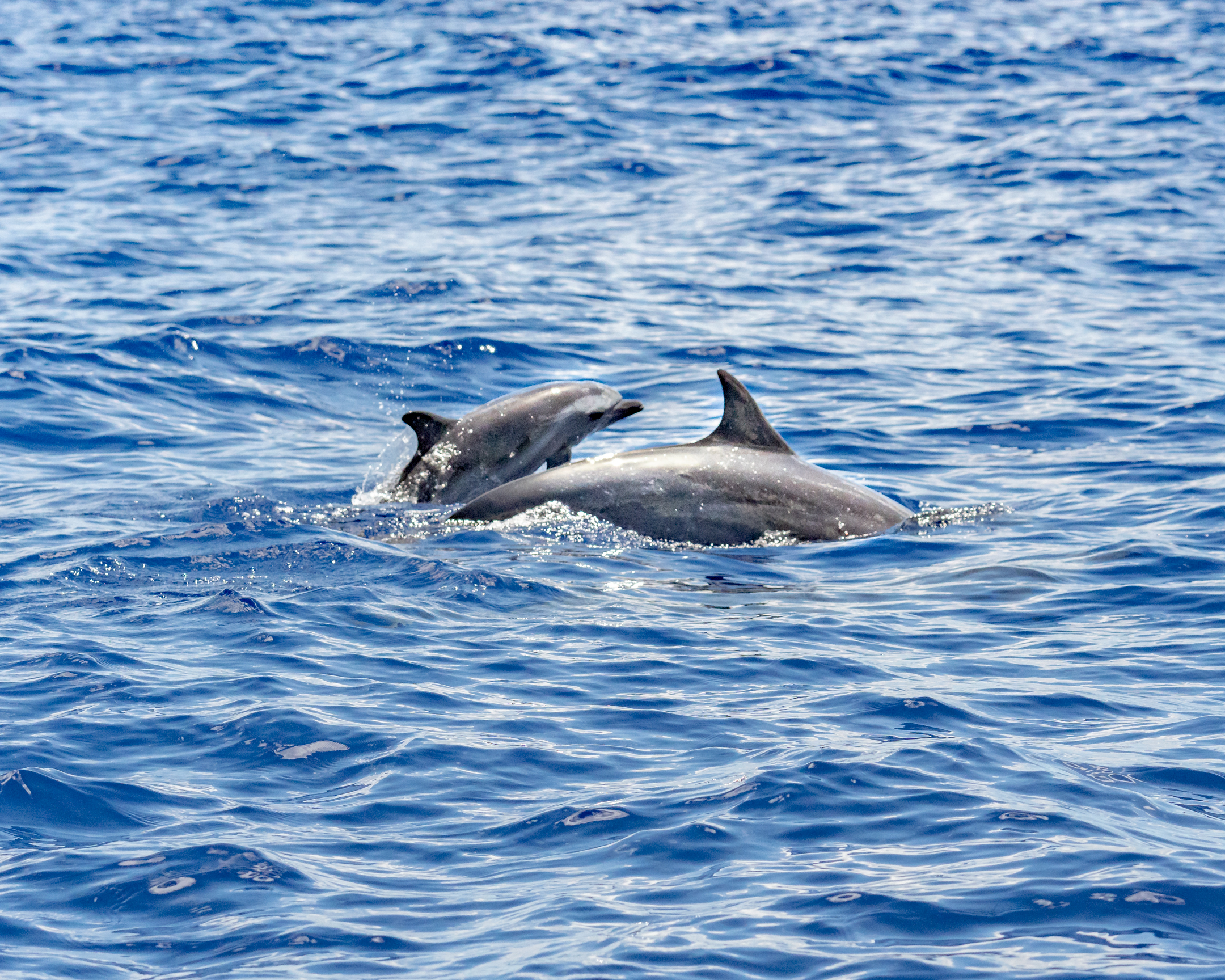
This is not just beauty. It’s ecological magic.
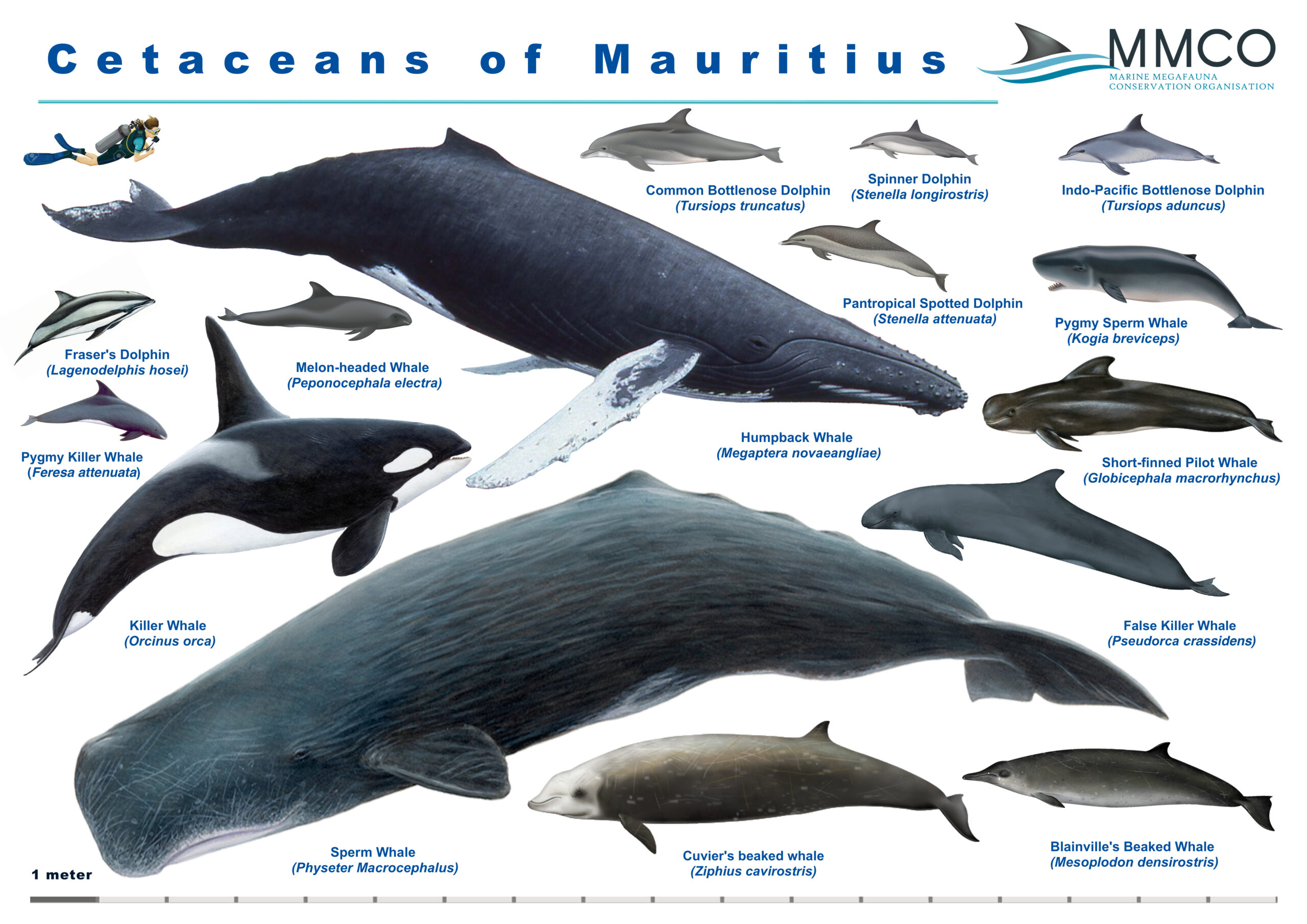
But magic, as we know, can vanish if we don't protect it.
The Whales We’re Not Watching: Chaos Beneath the Surface
From where I stood, I saw it all unfold —
The chaos.
The speed.
The frenzy of boats surrounding the whales.
It’s dangerous.
And it’s happening despite the laws in place to protect these animals.
Swimming with sperm whales is illegal in Mauritius.
But every day, tourists ignore this and get too close.
And this rush — the race to get in the water — it’s just too much for these animals.I see how everyday these animals are being incredibly uncomfortable with people wanting to be close to them.
Its a very biased feeling to have.The people are now fanatized by being with them whereas before, this whales were suffering people hunting them... But on the other side of the coin, they are being treated as statues or monuments for photos. This are living beings that feel and need to have their space. Like us...
The whales try to swim away, their tails slapping the water. Some escape. Others don’t.
I often wonder:
What are we waiting for? Is it a tragedy to get our attention?
MMCO: Advocating for the Ocean’s Giants
Mauritius Marine Conservation Organization (MMCO) is the oldest and only organization actively working to conserve these magnificent creatures.![]()
They collect data, raise awareness, and advocate for stronger regulations to protect marine life.
Their work is essential — and too often, it’s invisible.
If you care about whales, support their mission and visit MMCO’s website or follow them on Instagram.
Or on facebook here:
Click here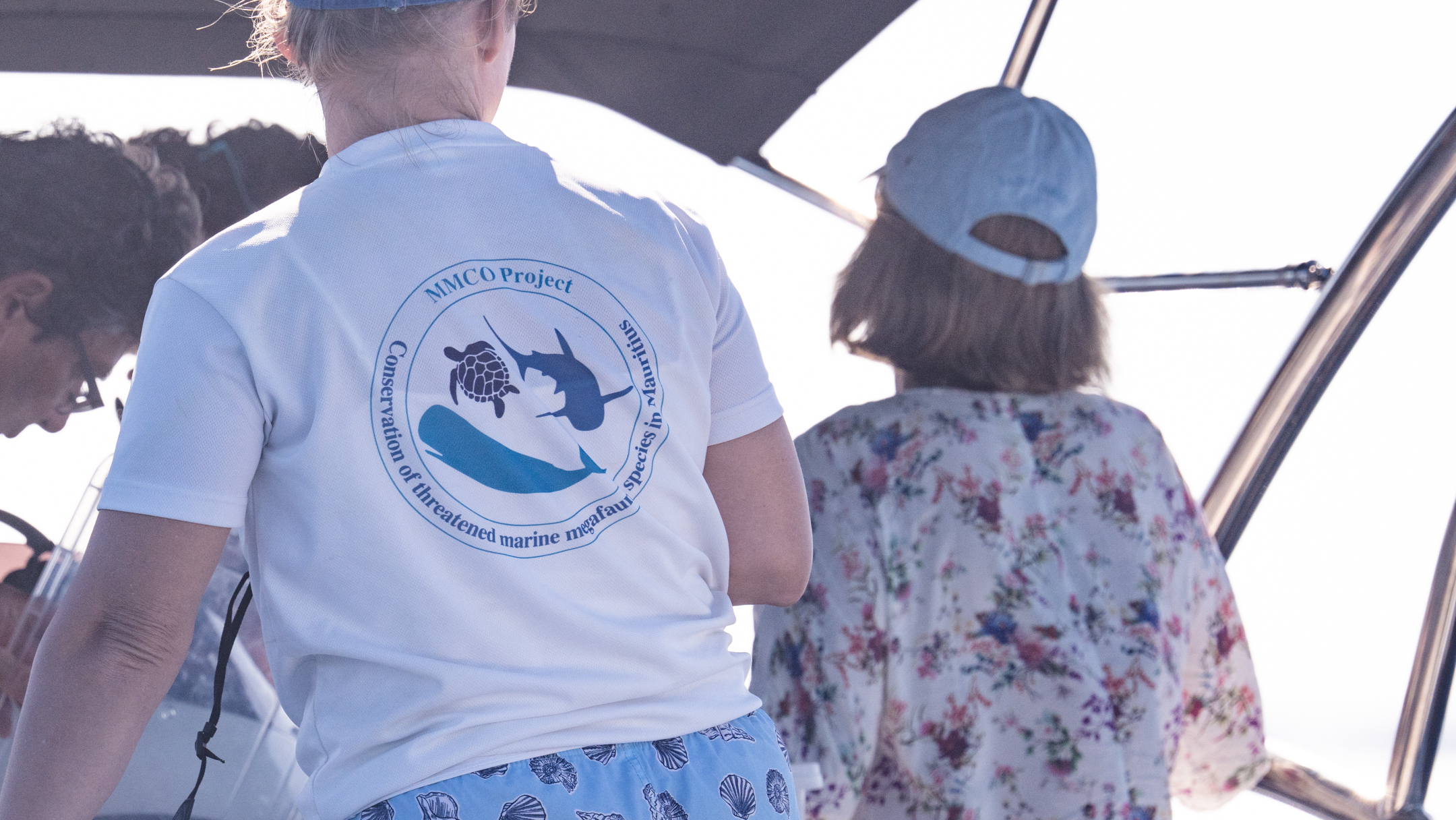
Without such organizations, we risk losing the very creatures that make Mauritius special.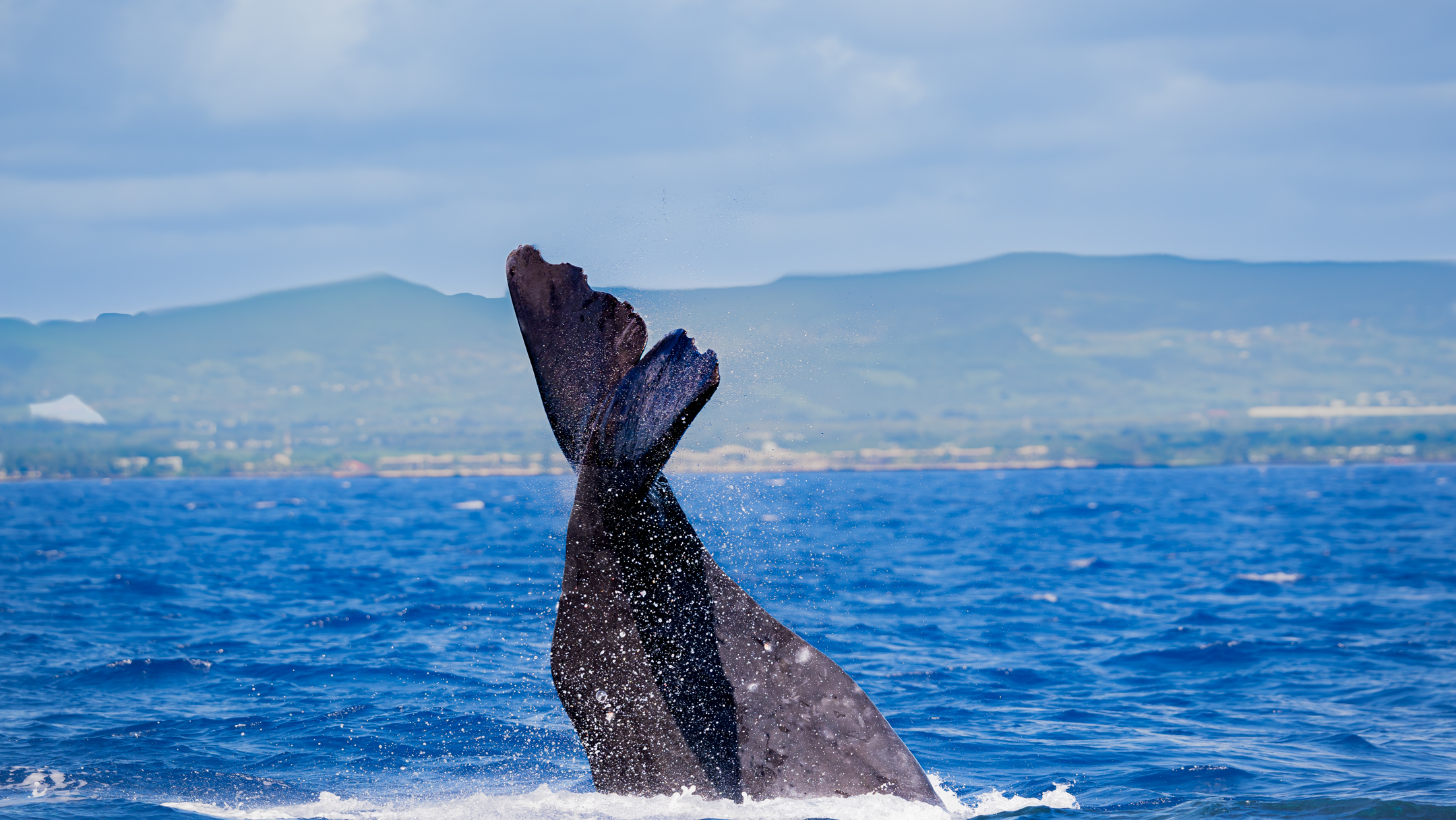
The Harm We Don’t See
I’ve often found myself reflecting on how close we are to the edge. The ocean is full of life, from tiny fish to majestic whales, yet we constantly encroach on their space. Every day, whales dive, hunt, and breathe — but we race to get in the way.
What if the whale you just dropped next to was pregnant?
What if her tail wasn’t a playful flick but a desperate move to escape?
What if the stress from our actions is forcing them to leave?
We often treat these majestic animals as content — a once-in-a-lifetime experience for us.
But for the whale, it’s just another exhausting day of surviving human interference.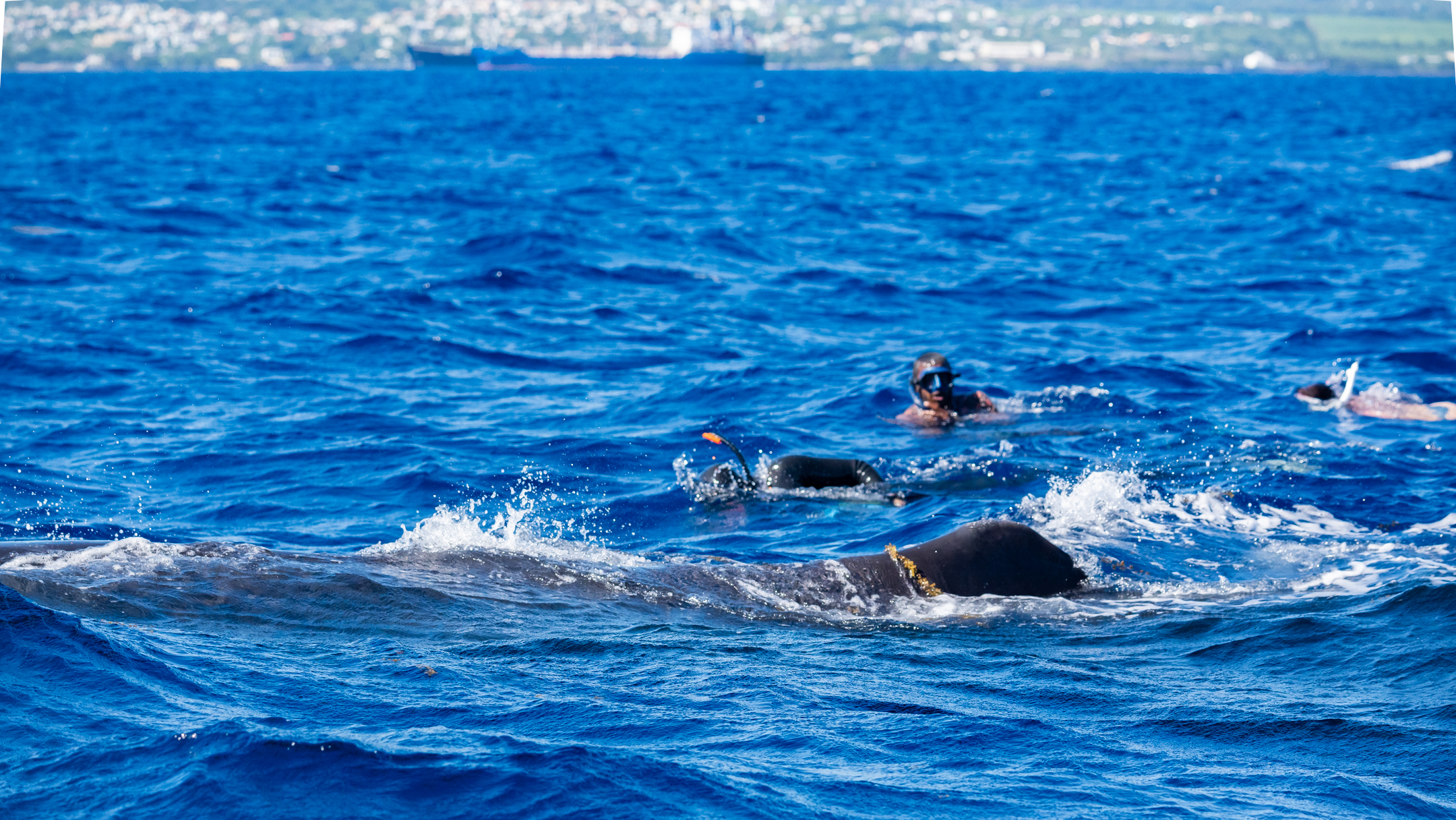
The Need for Ethical Tourism
So what can we do about it?
We’re not here to blame or destroy jobs — we’re here to educate and raise awareness.
The reality is, tourism is growing fast, and with that comes more boats, more noise, and more chaos for the animals. But it doesn't have to be this way.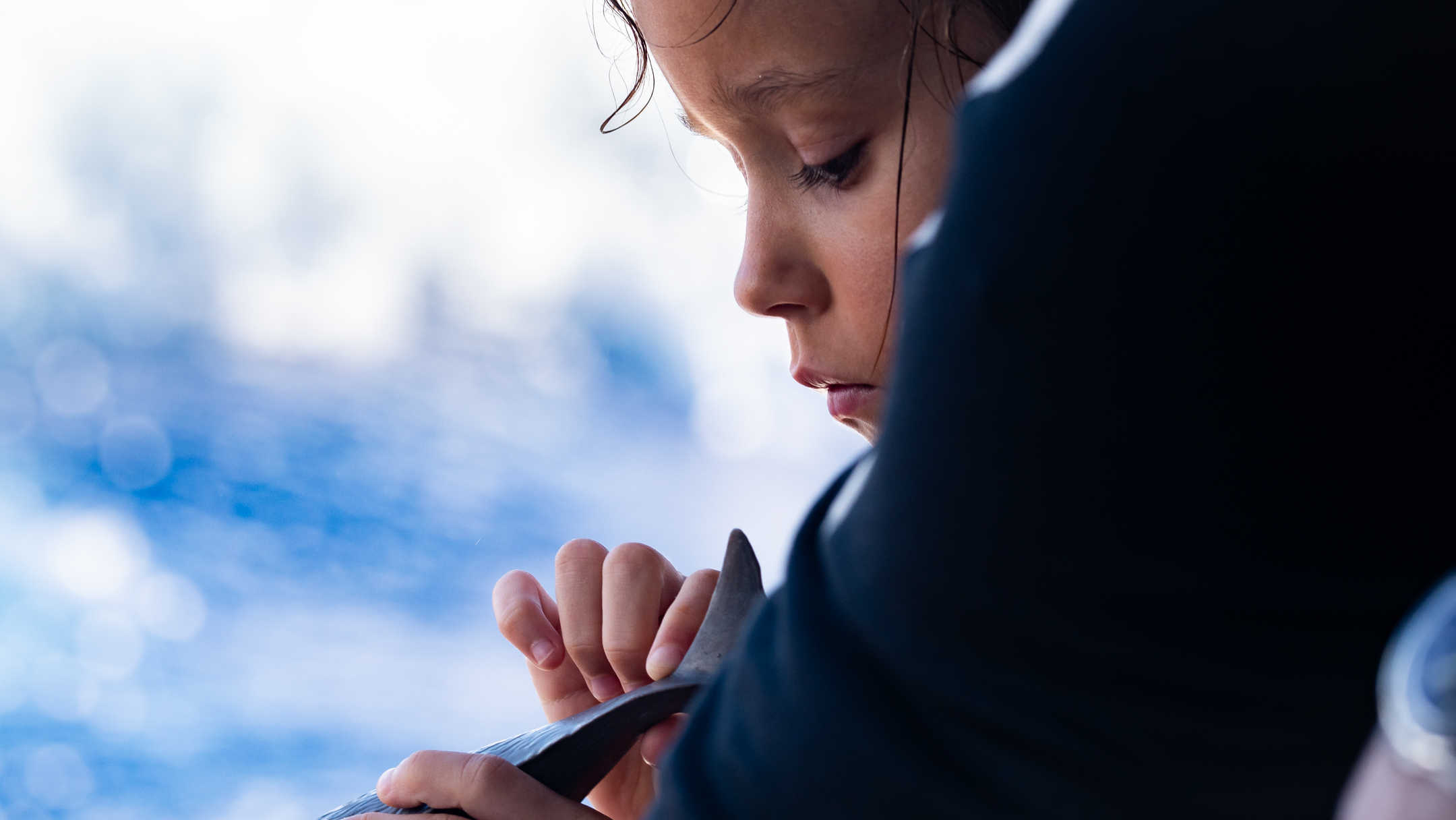
In other places, governments and businesses have worked together to manage tourism responsibly —
they’ve established guidelines, created awareness programs, and enforced tourist regulations. Why not here?
Mauritius has a unique opportunity to lead by example. By protecting our most valuable asset — these whales — we can create a future where tourism and wildlife coexist harmoniously.
There are rules to follow, that are made for the sake of the well being of the animals.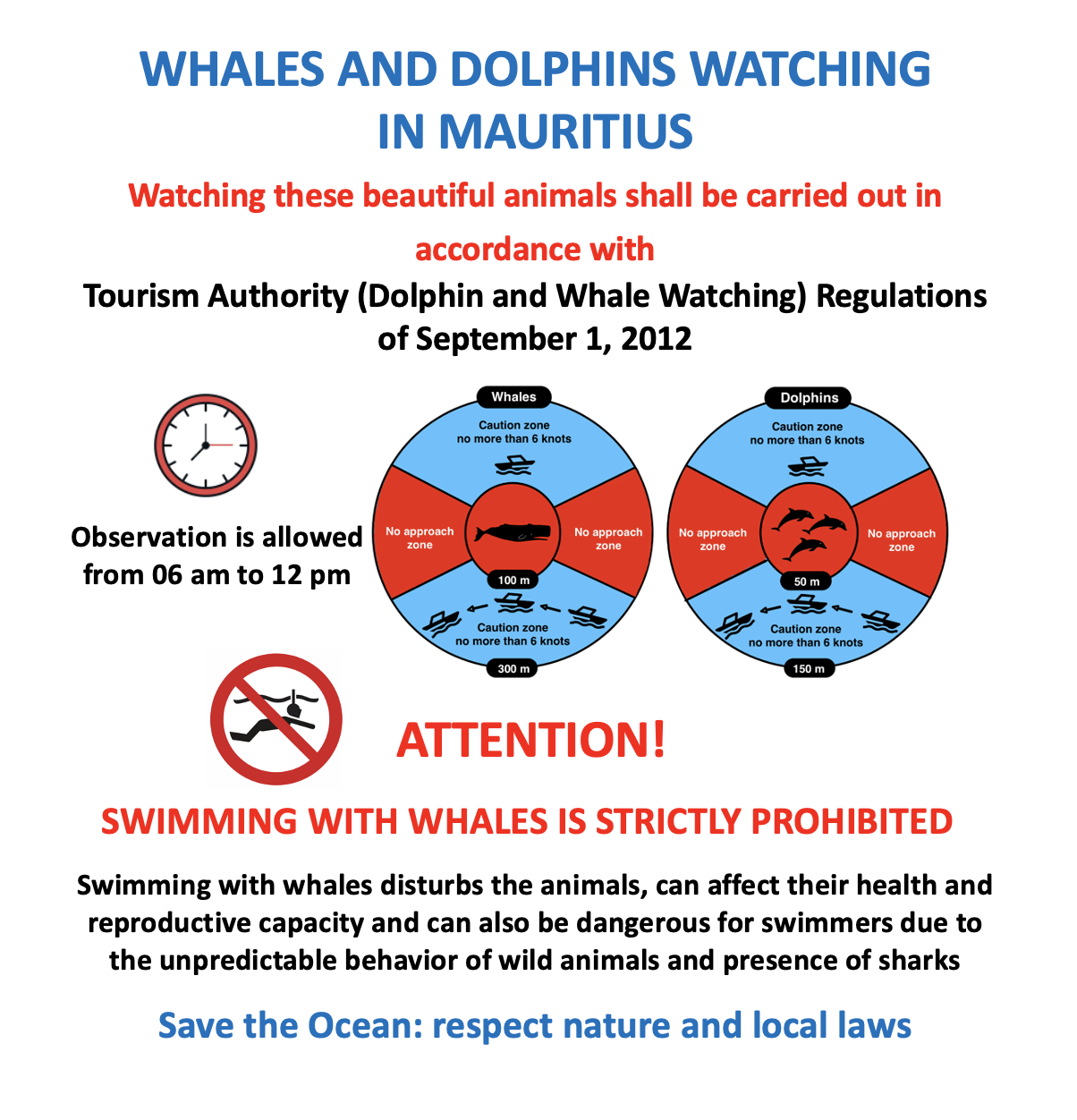
Can We Protect What We Love?
Here’s the truth: If we don’t act soon, these whales might leave.
In the past, we’ve seen animals disappear from tourist hotspots.
What happens when they leave?
The tourism economy suffers.
The locals lose a vital resource.
The balance of nature tips further out of control.
But if we treat our ocean as a national treasure, with the same respect we’d give to our most valuable resources, we can ensure its survival.
We can create a better, more sustainable form of tourism that doesn’t harm the whales but instead nurtures them.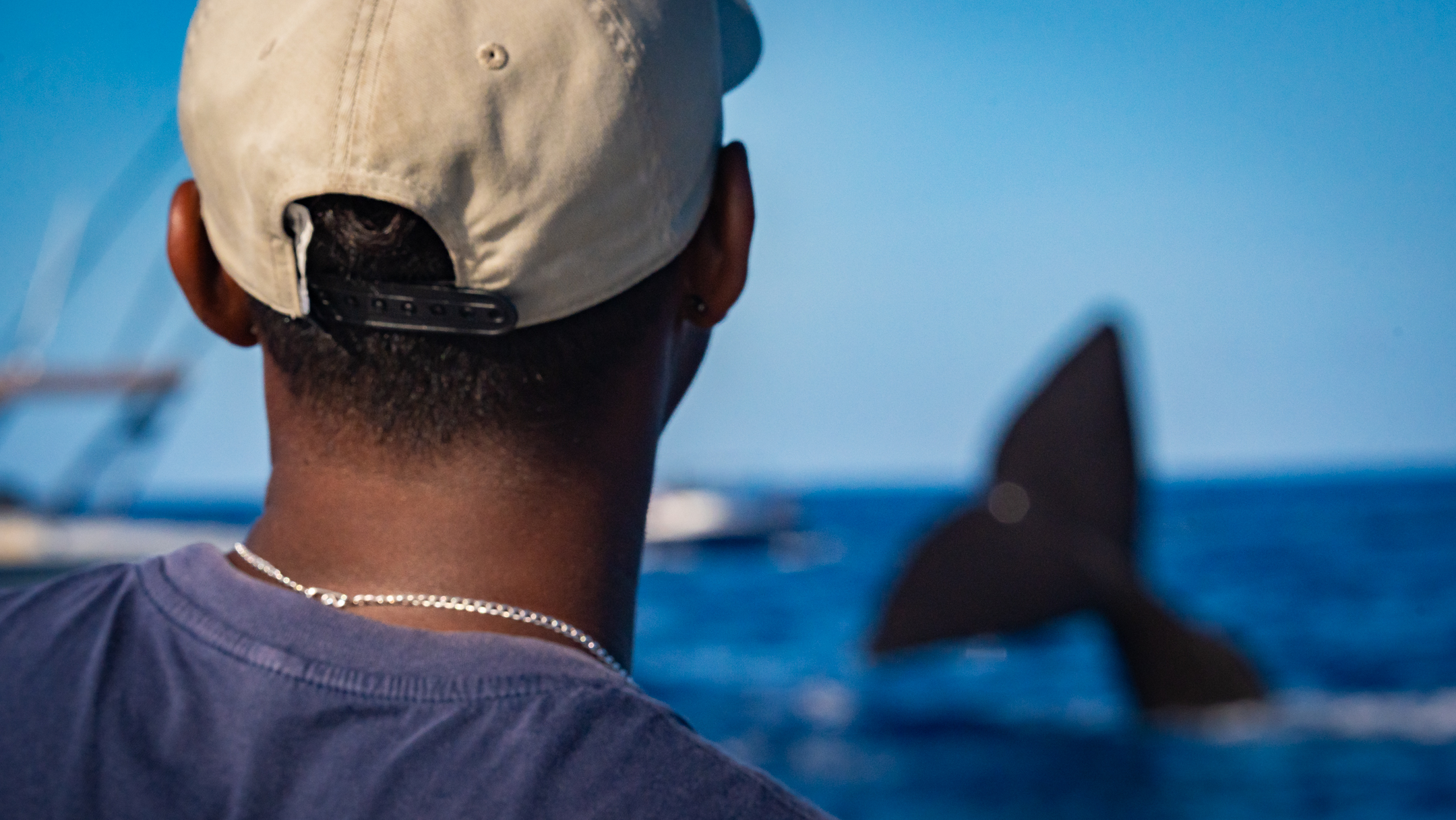
What You Can Do to Protect the Whales
So what can you do to make a difference? Here are some steps:
-
🐋 Support Ethical Tours: Choose operators who respect the laws and prioritize the well-being of whales over profits.
-
📢 Raise Awareness: Talk to others about the harm caused by illegal swimming with whales.
-
🌱 Support Conservation: Follow and support organizations like MMCO, which are actively working to protect these incredible creatures.
https://www.mmco.mu/cetaceane/ -
💬 Speak Up: Use your platform to call for stricter regulations and enforcement. Its very beautiful to show animals and their beauty, but please dont encourage people to create this kind of stress around the animals we all love
The Wildest of Them All: A Call for Action
We call them wild — unpredictable, free, and majestic. But the real wildness might not lie in the animals themselves. It’s in how we act.
Whales teach us something important.
They show us the power of respect, the need for empathy, and the urgency of preservation.
The ocean is calling.
Let’s answer before it’s too late.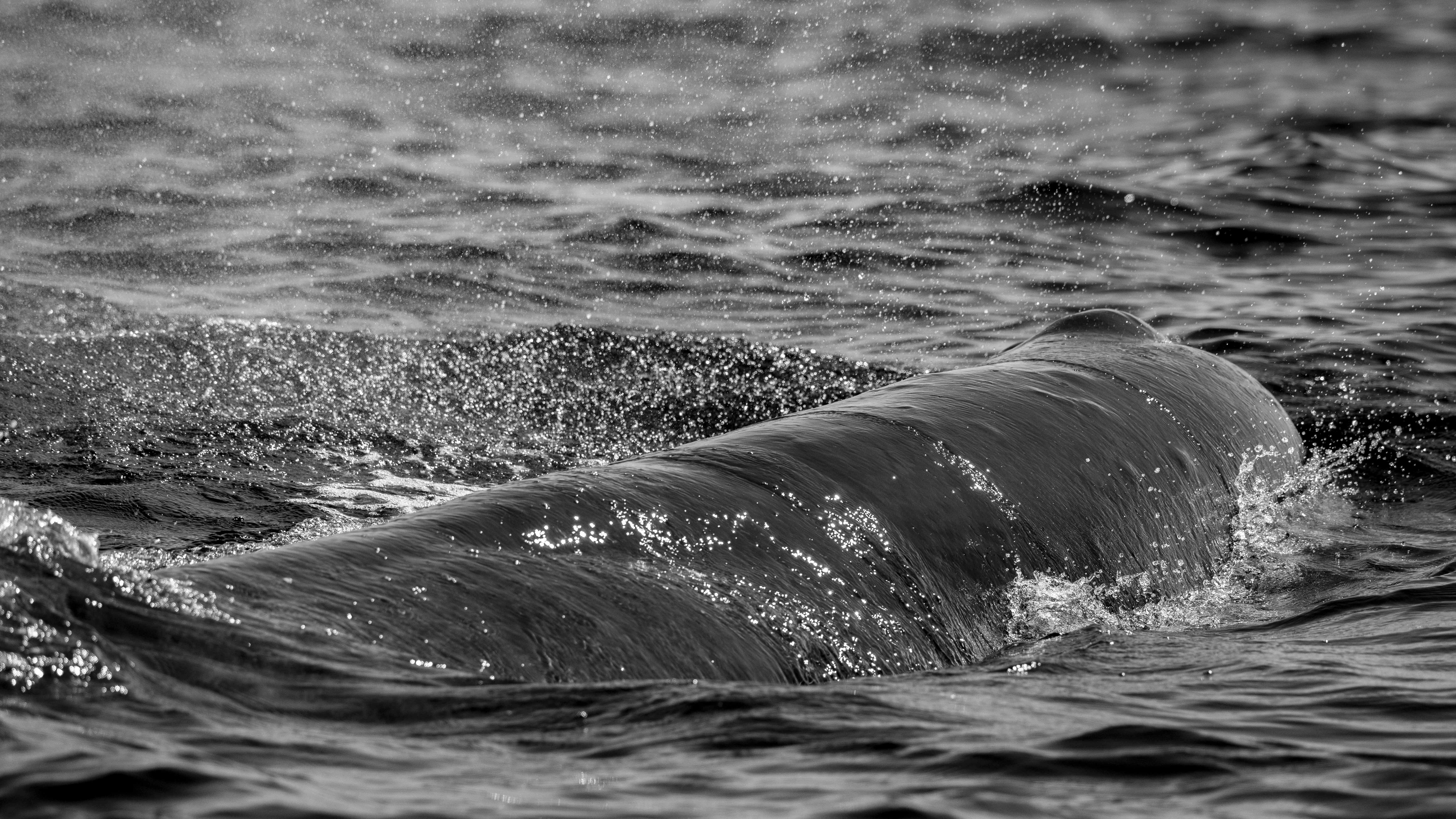
May the ocean be with you all the time
Written by Fabrizio Ferrari – @spottedfabri
Ocean guide, photographer, and believer in empathy.
All the pictures by SpottedFabri.png)

